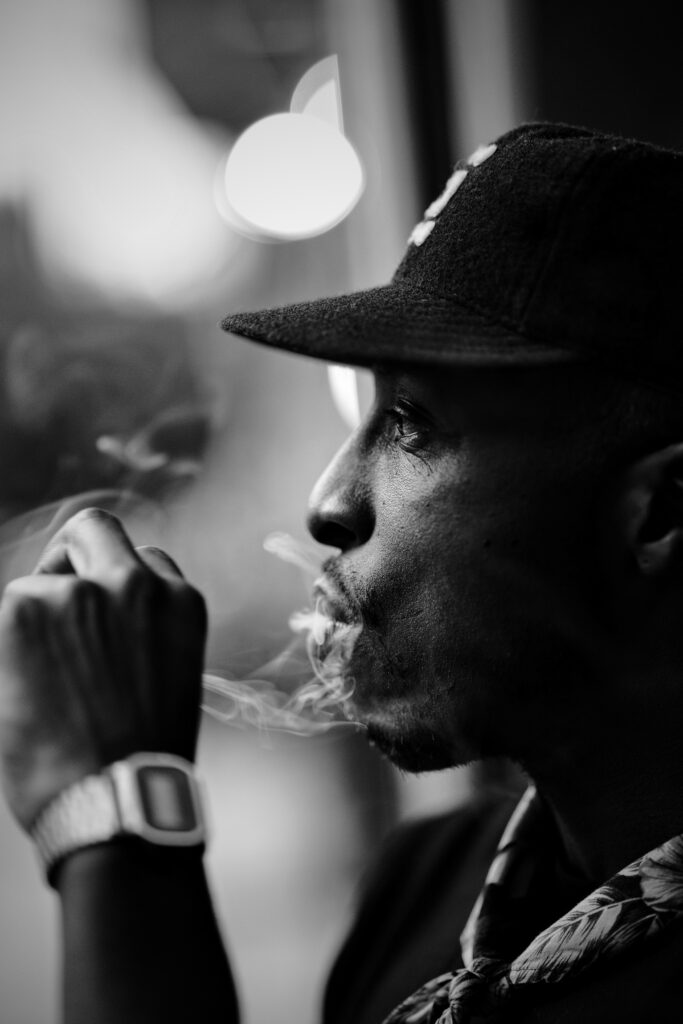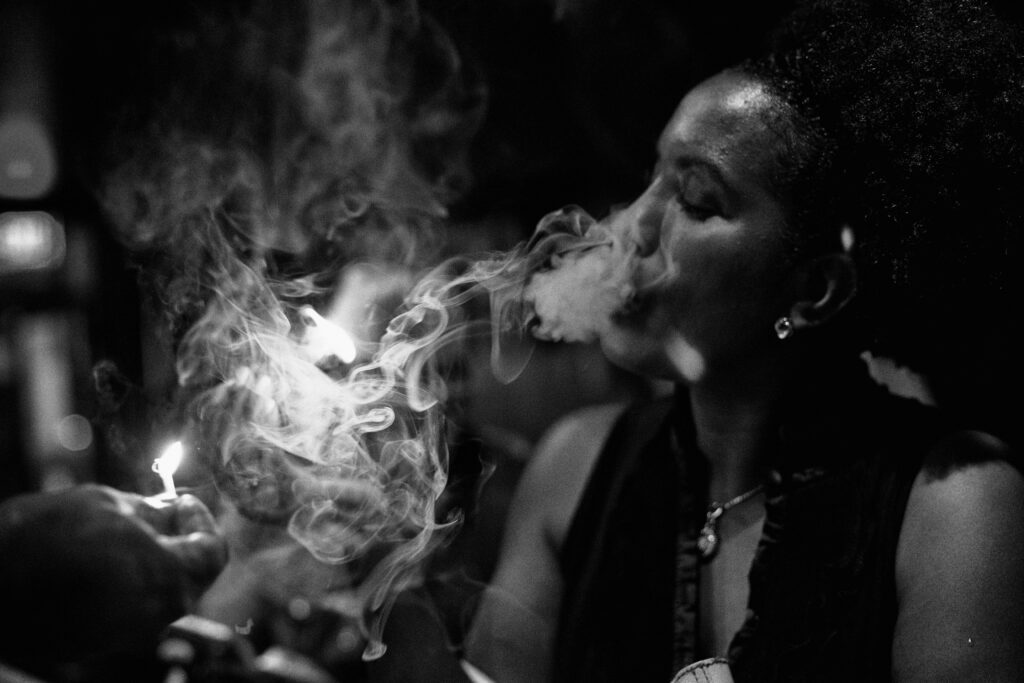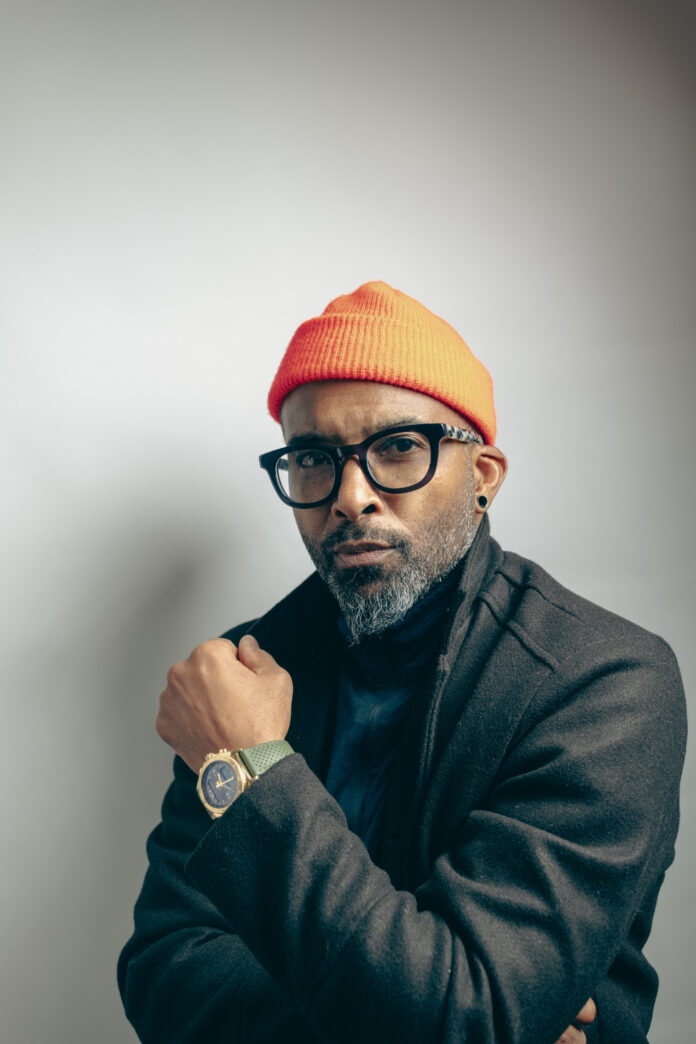Cigars have long been a symbol of tradition, luxury, and social connection, bringing people together across cultures and generations. For photographer and cigar enthusiast John Walder, this ritual became more than just a pastime—it became a lens through which to explore identity, community, and storytelling. In his project Social Light, he captures the vibrant and diverse world of cigar culture, offering a fresh perspective on an often-overlooked community. Through his work, he challenges mainstream representations, emphasizing the camaraderie, personal rituals, and unique experiences that shape the cigar-smoking lifestyle. In this interview, he shares the inspiration behind his project, his approach to photography, and how Social Light sheds new light on the intersection of cigars and culture.
What inspired you to explore cigars and their culture as the central theme of Social Light?
Walder: My inspiration for exploring cigars and culture as a central theme stemmed from my passion for both photography and cigars. In 2016, I felt the need to embark on a personal project that would allow me to further develop my creative voice. As I revisited my collection of cigar-related photographs, I realized how deeply this world resonated with me. However, I also noticed a significant gap in representation—while cigar publications featured occasional celebrities of color, there were no books that truly celebrated the diverse community of everyday cigar enthusiasts. That realization fueled my desire to document this culture in a way that felt authentic and inclusive.

Cigars often evoke images of luxury and tradition. How does your photography challenge or reinforce these perceptions?
Walder: I believe my photography does both—it reinforces traditional perceptions while also expanding them. Luxury is often subjective; some people associate it with wealth and status, picturing someone in an expensive suit or evening gown smoking a fine cigar. But luxury can also be found in the experience itself—someone casually dressed, enjoying an exceptionally rare cigar, or even a more affordable one, purely for the pleasure of it. There’s also an inherent luxury in the ritual—the act of cutting, lighting, and savoring a cigar is, in itself, an indulgence. As for tradition, that too depends on the viewer’s perspective. Whether it’s a personal ritual, a cultural practice, or a shared experience among peers, cigars have a way of bringing people together. One undeniable tradition, however, is the camaraderie—a timeless aspect of cigar culture that transcends background, status, or experience level.

As an African American artist, how do you see your perspective shaping the narrative around cigar culture in this project?
Walder: My perspective naturally shapes the narrative simply by sharing my experiences within this space. While I have the opportunity to tell my own story and provide representation, I’m not necessarily trying to shift anyone’s perspective or influence those outside the culture. My goal is to create and share my work authentically. If it resonates with others and opens up conversations, then I’m happy that it has made an impact.
Cigars have a rich history that spans continents and cultures. How does Social Light engage with the origins of this lifestyle?
Walder: While the global history of cigars is vast and fascinating, Social Light doesn’t focus directly on their origins. My goal with this project was to capture my own experiences and interactions with the cigar community as it exists today. However, I do recognize the deep historical and cultural significance cigars hold, and I may explore those themes in future projects.
Lifestyle photography is deeply personal. How have your own experiences and cultural background shaped your approach to this project?
Walder: My personal experiences have played a major role in shaping this project. Over the years, cigars have led to incredible conversations, deep friendships, and meaningful connections that might not have happened otherwise. When I looked at mainstream cigar publications, I noticed a lack of representation—while celebrities were often highlighted, everyday men and women in the cigar community weren’t being showcased. That realization was one of the key motivators behind Social Light. I wanted to shine a light on the people and moments that make this culture so rich and dynamic.








